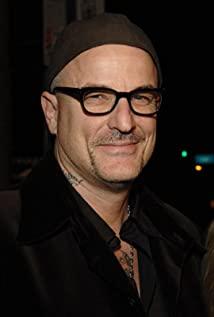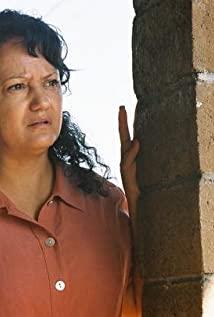The original work of "Sister's Guardian" is a controversial classic work by American novelist Jodi Picoult, who has been the "Most Popular Writer in North America" for five consecutive years. [①] The movie tells the story of a pair of American parents who used advanced genetic technology to treat their eldest daughter Kate, who was born with leukemia, and gave birth to their young daughter Anna, who was a perfect match with Kate's gene. For more than ten years, Anna has continuously donated cord blood, white blood cells, stem cells and bone marrow to her sister Kate. Nowadays, Kate has kidney failure, and her parents ask Anna, who is underage, to donate a kidney to her sister. Anna refused this request and found lawyer Campbell to take her mother, who was a lawyer, to court to defend her autonomy over her body. But in the court, Anna confided that her lawsuit against her parents actually came from the patient's Kate's instigation. Her sister didn't want to continue to harass her sister and her parents, and she didn't want to live a painful life in the torment of the disease. The court finally ruled that Anna won the lawsuit. "Sister’s Guardian" behind the moving and tortuous dramatic conflict not only contains the disputes between the positions of Absolutism Deontology and Utilitarianism on important issues such as autonomy and euthanasia, but also By infiltrating philosophical ideas into literary narratives, it has meticulously portrayed the current medical ethics of contemporary American society and family ethical relations.
1. The moral dilemma that starts with autonomy
Human autonomy is the core concept in the fields of moral philosophy, political philosophy, and applied ethics. The German philosopher Kant associates it with the rational dignity and value of humans in the "Principles of Moral Metaphysics", which has a profound influence on the positioning of this concept in the perspective of contemporary philosophy. Among his followers is Rawls ( Rawls), Dworkin (Dworkin) and Feinberg (Feinberg) etc. The three principles of respect, benefit and justice established in the "Belmont Report" in 1979 put respect for the autonomy of patients and subjects in the first place of medical ethics.
The principle of autonomy is usually defined as the principle that individuals live by following their own rational abilities and motivations, and aim at themselves, not as a tool to achieve the goals of others, and the principle that they are not interfered by external forces. [②] Body autonomy based on the principle of autonomy is a basic right of patients, donors and subjects in medical ethics. However, contemporary scholars such as Onora O'Neil believe that excessive emphasis on the principle of autonomy will encourage ethical individualism and excessive self-expression, thereby increasing the burden on the doctor-patient relationship and the public's distrust of medicine and technology. [③] The basic reason for this view is that the principle of autonomy has two dilemmas in the practice of medical ethics: First, in view of the differences in knowledge and rationality between individuals, especially when the disease affects the mental health of patients, In patients in a coma or emergency state, as well as in individuals whose personal freedom is restricted (such as prisoners), due to the lack of fully autonomous behavioral capabilities and conditions, they cannot make choices and decisions based on autonomy.
Regarding this issue, we plunged into a kind of moral and emotional contemplation with Anna at the beginning of the movie. On the one hand, the voice-over Anna is calmly telling how she was born as a "spare" for her sister, and constantly contributes her body under the request of her parents. On the other hand, it also showed the happy and beautiful scenes experienced by the three children in the family growing up. In "The Guardian of Sister", both Kate and Anna are minors, and they cannot fully exercise their autonomy without full civil capacity. Secondly, the autonomy of the individual is restricted by others and the society. In other words, the individual is not an "uninhibited self", but is in the family, group, and social relationship. For example, from the perspective of public health and public policy, the prevention and control of epidemics will inevitably limit the autonomy of individuals; while considering the use of public resources, it will not be entirely based on the preferences and interests of individual individuals. center. Therefore, the concept of autonomy itself has a certain degree of moral dilemma (Dilemma), and this contradiction is also reflected in the emotions and intuitions of the parties. As a lawyer, Campbell represented Anna in the lawsuit against her parents. Obviously, in his opinion, Anna's pursuit of autonomy can be supported by a considerable degree of law. It can be inferred that Campbell’s point of view is based on two considerations: First, he himself suffered from a serious illness (epilepsy) and lost some of the autonomy of the body. Therefore, he expressed emotional understanding of Anna’s appeal for autonomy; Second, he thought rationally from the perspective of a lawyer. The "abuse" of Anna's body by his parents and doctors lacked moral and legal basis. In his view, this kind of abuse conflicts with the value of justice generally recognized by the society. In other words, it is unfair to Anna: she was born in a way to save her sister and continued to act as a donor. Anna's personal integrity was destroyed, she shouldn't have been involved in it and suffered unnecessary suffering.
2. Controversy between Deontology and Consequence Theory
As a legal worker, Campbell's position can be attributed to the absolute deontological norms originating from Kant. In Kant's view, human beings, as rational beings, should be regarded as goals, not tools, under any circumstances. This is the inevitable and inescapable responsibility of human beings and others. [④] The successor Dworkin believed that autonomy, as a manifestation of the unique dignity of human beings, surpasses all values, and there is no equivalent to replace it. Take the famous "switcher's paradox" as an example: in the face of the moral dilemma, in the view of the absolutist, the switcher cannot change the direction of the train because the passerby on another rail was not originally part of the accident. Shouldn't get involved. Choosing to sacrifice him is unfair from the point of view of social justice, and the integrity and dignity of his life have been severely violated as a result.
Rawls summed up the principle of deontology as "justification takes precedence over good"; and goodness depends on whether the behavior is justified. But from the opposite standpoint, utilitarians may support the least loss of behavior, which is to sacrifice the innocent few and save the lives of more people. The main representatives of the concept of utilitarianism include American philosophers Jeremy Bentham and John Stuart Mill. We call this the Consequentialism of Utilitarianism. Muller argued that "the happiness that is the criterion of right and wrong behavior is not the happiness of the actor himself, but the happiness of all related personnel." [⑤] Regardless of the method, as long as it can bring more good results, It is reasonable to maximize the happiness that brings the most people. Consequentialism examines their moral meaning through the consequences of behaviors. In other words, a behavior is only morally good if it improves things in people's lives and enhances the overall well-being of human beings. It can be seen from this that the difference between deontology and consequentialism is that the former presupposes the transcendental element of "only people themselves can be used as the goal". This supremely good internal purpose provides a standard for the legitimacy of other behaviors; The core is not how to maximize well-being, but how to pursue happiness properly; people cannot search for happiness or good results without restriction, at least on the premise of respecting and not infringing on the interests and freedom of others. Therefore, from a deontological point of view, the reason why attorney Campbell would support Anna’s lawsuit, in the final analysis, is that he believes that parents and doctors have violated Anna’s physical autonomy based on the overall interests of the family, especially when she is still in Minors, lack of self-determination ability.
If we assume that the parents in the movie, especially the doctors, take the overall happiness of the family as the reference principle and stand on a utilitarian standpoint, then the parents will decide to "sacrifice" the sister out of affective factors such as love and reluctance for sister Kate. Anna, as a bystander doctor actually often encounters terminal cancer patients and dying patients, the doctor should also know that his "private" advice is not allowed in law. But he did this to save Kate's life and at the same time bring more hope to this unfortunate family, so as to complete the highest mission of being a doctor to treat patients and save people. Compared with these "common interests", Anna's sacrifice is obviously worthwhile in his opinion. However, this utilitarian concept faces the deontological criticism that opposes the use of people as tools and means on the one hand; on the other hand, we cannot help asking, who has the right to sacrifice the interests of the few for the happiness of the majority? Acknowledging the rationality of this behavior will be subject to blame such as "is it reasonable to do evil for good results?"; long-term compliance with this kind of moral code is likely to lead to a decline in the moral level of the entire society. The collapse of ethical order. For example, suppose there are five people who need different organ transplants, and a normal person happens to have different organs suitable for each of them. Can we kill this person and transplant his organs separately to seem to bring greater benefits? And the other five people of well-being, save their lives? From a utilitarian perspective, the answer is obviously no. The reason is that utilitarianism is not a code of conduct or a basis for actor to use for decision-making, but in essence it is a legitimate standard. "While acts of utilitarianism is to maximize the effectiveness of behavior, but this is not to say that, in any case we are intentionally (deliberately) maximize utility." [⑥] If you stand in this position for the movies In defense of the parents and the doctor, it can be said that their choice is that under the current circumstances, their behavior is morally justified due to the maximization of utility; rather than deliberately infringing on Anna's behavior out of consideration of some utilitarian consequences Benefits and autonomy.
3. Return to respect for autonomy
It is for the above reasons that the audience's "moral intuition" did not give too much moral condemnation to Anna's parents and doctors during the viewing process. On the one hand, we will sympathize with our parents’ emotional dilemma, and on the other hand, we may question Anna’s excessive indifference and rationality. Therefore, the question that then arises is, does Kate’s misfortune be shared by her sister really violate Anna’s personal autonomy? The question first points to the beginning of the movie, that is, do Anna's parents have the right to allow Anna to be born with a perfect match with Kate's genes by artificial intervention? If there are doubts about whether childbirth is based on individual autonomy, it is actually a doubt about human life itself, because all the births of babies in history have not been based on the voluntary basis of the subject; and this question will be extended to The anxiety about the meaning of the reproduction of the entire human race is obviously unreasonable. If parents and doctors base their behavior on the family’s overall well-being, as O’Neill’s criticism of the concept of autonomy shows, the overemphasis on autonomy reveals its individualistic tendency, which is based on the concept of individual rights and individual freedom. However, individual freedom, interests and well-being are only possible in the family and social community; in the movie, if the parents did not artificially intervene in genetic matching with the overall well-being of the family as the starting point, Anna would not be born. There is no possibility in her life. In other words, does Anna's non-existence really fit her autonomy more than her existence? It is hard to say that the value of Anna’s existence and the individual’s feelings depend entirely on this “artificial” life endowment. No matter how she was born, all the possibilities and meanings in her life will begin from this point. Without this beginning, There is no way to talk about all issues such as autonomy. With the development of the plot, especially Anna’s self-report at the end of the movie also confirms this suspicion: Anna has found herself in the short life fragments of more than ten years, especially in the process of facing the life and death of her sister with her family. Unique life experience and existence value.
If only based on the above two criticisms, Anna's claim of body autonomy has not received sufficient ethical support. However, the victory of Anna and lawyer Campbell in the lawsuit contradicts this conclusion. Is the principle of autonomy at the legal level not in itself the primary and fundamental position in medical ethics? There are two issues involved here: First, morality and law, as social norms, belong to different fields. Although law itself has a huge moral value, it is a manifestation of moral concepts to some extent, but the two still exist. "The boundaries of own territory". Second, it was an important turning point in the movie. During the trial, Anna told the truth: she was entrusted by her sister Kate to execute the lawsuit, because Kate knew that she had no hope of survival, and she didn't want to drag her family anymore, and she couldn't persuade the strong. Therefore, she hopes that Anna will force her parents to stop treatment and end her painful and tortured life by fighting for physical autonomy.
From the perspective of narratology, this plot setting of the film is called "sudden turn" and "discovery" in the classical drama theory of Aristotle's "Poetics". They are the two "plots". The most important part. The so-called "sudden turn refers to the movement to the opposite side according to the principles we call"; "discovery refers to the transition from unknown to knowledge". [⑦] In "The Guardian of My Sister", the plot originally developed according to Anna’s court proceedings in which Anna sued her parents. The emotional, legal and moral disputes between the two parties reached its peak here, but Anna’s words in the court evidence collection broke the narrative chain and formed Suddenly; Kate's role in promoting the case and Anna's true intention to sue her parents, which was originally outside the core of the narrative, have also been "discovered" again. Anna's claim is not to defend her own body autonomy, but to recognize Kate's understanding of the meaning of life and help her defend her autonomy in life in an indirect way.
This episode suddenly shifted the focus from the autonomy of donors in medical ethics to the principle of autonomy of patients. In the case of advanced cancer patients, knowing that they have no hope of survival, whether they have the right to choose to end their lives early in a painless way, that is, whether Kate's autonomy in his own life should be respected. By extension, it is what we usually call the "euthanasia" problem. Euthanasia is usually divided into four types: voluntary active euthanasia, that is, conscious patients authorize doctors to end their lives with drugs; voluntary passive euthanasia, that is, patients authorize doctors not to take any treatment measures to accelerate their natural death; involuntary active euthanasia, generally Refers to unconscious or juvenile patients who have been instructed by their guardian to actively perform euthanasia with the assistance of doctors; involuntary passive euthanasia refers to unconscious or juvenile patients with the authorization of their guardians, and the doctor does not take any treatment measures to accelerate the death of the patient. [⑧] "Sister's Guardian" did not describe the issue of euthanasia in depth, but since Kate gave up treatment in the second half, strictly speaking, the hospital has implemented "voluntary and passive euthanasia" measures for Kate. Regardless of the complicated issue of euthanasia, the hospital and Kate's mother gave up treatment, and even the court decided that Anna won. They all respected Kate's personal wishes and gave emotional and rational support for her autonomy. This is the ethical focus of the film's attention and the main clue that drives the development of the plot. At the end of the original novel, in order to cater to the narrative techniques of Hollywood melodramas and family ethics novels, Anna was killed in a car accident and donated the kidney to Kate. To a certain extent, it reduced the spiritual core of the work, but revealed the philosophy. The connotation has not been weakened.
Autonomy is one of the intrinsic and fundamental attributes of the individual. The principle of autonomy from the perspective of absolutism is the manifestation of individual free will, and it is the basis for people to be human as an end rather than as a means to achieve the goals of others. Utilitarianism also recognizes the principle of autonomy, which is the ultimate goal of the community, "a good life." (Well-being) basic elements. After the rise of liberalism, its theoretical postures are diverse, but the principle of autonomy has always existed as the cornerstone of various theories, and philosophers have conducted in-depth exploration and development of its connotation from different angles. However, it should be noted that the various forms of the principle of autonomy are always associated with individuals and lack the dimensions of the group and the “other”. Therefore, while advancing the principle of autonomy, how to deal with individuals and families, groups, and others, and even with others. The relationship between different cultural traditions is extremely urgent. In the movie, the autonomy of the patient Kate, the life of Kate (that is, the expectation of the whole family) and the autonomy of the donor Anna always exist in a huge irreconcilable tension. Only when Kate made the decision to give up life based on her autonomy, did she and Anna's autonomy reach a certain form of unity. Therefore, how to deal with this tension and conflict is still a theoretical dilemma that needs to be resolved urgently, including deontological and utilitarian thinkers. But from another perspective, although death means the end of life, the meaning of life does not end with the arrival of death. The value of Kate's life re-emerged in the light of love from parents, brothers and sisters, boyfriends and doctors. If there is a miracle in this film, then the greatness of this miracle belongs to the respect and infinite love of mankind for limited life.
[①] "Sister's Guardian" has been republished three times in China. The Chinese translation of this article is: Judy Piccott, "Sister's Guardian", translated by Lin Shujuan, Beijing United Publishing Company, 2016 edition.
[②] Thomas May, “The Concept of Autonomy”, in: American Philosophy Quarterly , 1994, p.133.
[③] Onora O'Neil, Autonomy and Trust in Bioethics , Cambridge: Cambridge University Press, 2002, p.75.
[④] Kant, "Principles of Moral Metaphysics", translated by Miao Litian, Shanghai People's Publishing House, 2002, p. 48.
[⑤] John Muller, "Utilitarianism", translated by Xu Dajian, Century Publishing Group, 2008, p.17.
[⑥] Will Ginlika, "Contemporary Political Philosophy", translated by Liu Xin, Shanghai Translation Publishing House, 2015, p. 40.
[⑦] Aristotle, "Poetics", translated by Miao Litian, Shanghai People's Publishing House, 2006, p. 43.
[⑧] James Steba, "Ethics in Practice", translated by Cheng Lian et al., Peking University Press, 2006, p.175.
View more about My Sister's Keeper reviews











